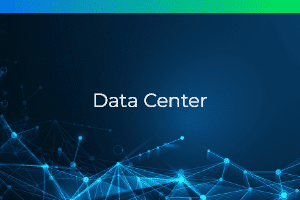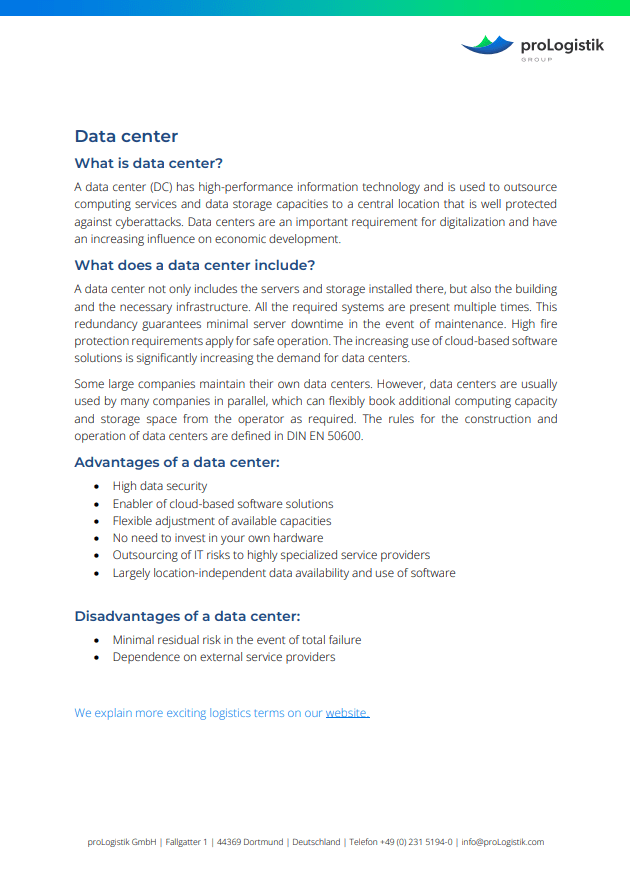What is a data center?
A data center (DC) has high-performance information technology and is used to outsource computing services and data storage capacities to a central location that is well protected against cyberattacks. Data centers are an important requirement for digitalization and have an increasing influence on economic development.
What does a data center include?
A data center not only includes the servers and storage installed there, but also the building and the necessary infrastructure. All the required systems are present multiple times. This redundancy guarantees minimal server downtime in the event of maintenance. For safe operation high fire protection requirements apply. The increasing use of cloud-based software solutions is significantly increasing the demand for data centers.
Some large companies maintain their own data centers. However, data centers are usually used by many companies in parallel, which can flexibly book additional computing capacity and storage space from the operator as required. The rules for the construction and operation of data centers are defined in DIN EN 50600.
Advantages of a data center:
- High data security
- Enabler of cloud-based software solutions
- Flexible adjustment of available capacities
- No need to invest in your own hardware
- Outsourcing of IT risks to highly specialized service providers
- Largely location-independent data availability and use of software
Disadvantages of a data center:
- Minimal residual risk in the event of total failure
- Dependence on external service providers

